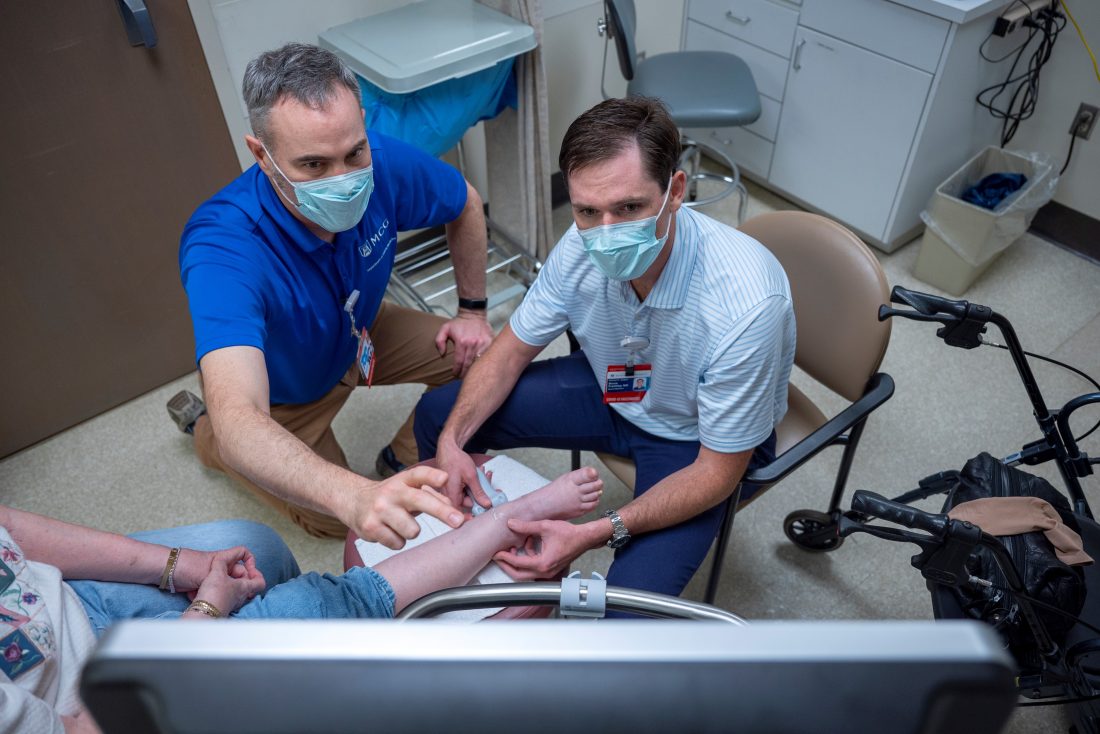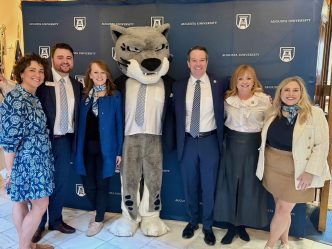Two one-year fellowship programs are aimed at expanding training opportunities in the Department of Family Medicine at the Medical College of Georgia.
The reestablished sports medicine fellowship is focused on helping primary care physicians develop the skills to help prevent and treat sports injuries. A new rural health fellowship aims to train primary care physicians who are less reliant on other specialists — like dermatologists and radiologists, for example — so they are prepared to practice more independently in rural and underserved areas.
The sports medicine fellowship, which will take one fellow per year beginning this year, is also supported by the MCG Department of Orthopaedic Surgery.
“Sports medicine fellowships are typically divided into two types — surgical and primary care,” explains Dr. Dean Seehusen, chair of the MCG Department of Family Medicine. “Our fellows will train both in orthopaedics and family medicine environments. They will learn a lot of ultrasound skills, musculoskeletal exam skills and procedural skills, like joint injections, for instance. They will have the opportunity to learn everything short of surgery.”
Fellows will also work with area high schools to help prevent and treat sports injuries among student athletes.
The program is directed by Dr. Chris Ledford who is certified in sports medicine by the American Board of Family Medicine and joined MCG last July after retiring from the United States Air Force. Physicians who practice in a wide variety of specialties, including family medicine, emergency medicine, internal medicine and pediatrics, are eligible to apply.
The new rural health fellowship aims to train primary care physicians to deal with the most common complaints in areas like musculoskeletal medicine, dermatology and behavioral health, in addition to using point of care ultrasound as a diagnostic tool.
“We believe this will make them a more independent, more standalone provider,” Seehusen says. “For example, if you’re in rural southwest Georgia and you’re told you need to see a dermatologist, you could be in for a long drive, a long wait for an appointment and multiple trips, depending on the issue. If your family physician feels comfortable taking care of that same issue right there, that saves time, money and frustration.”
Fellows will train not just in the MCG Department of Family Medicine, but in other departments like dermatology and orthopaedic surgery as well. They also will go to rural sites and practice skills there.
“You can really personalize this fellowship,” Seehusen says. “We get to make the curriculum and then tailor the experience each year to what a particular physician or area of the state needs.”
The program, which will take its first fellow next year, is directed by Dr. Julie Dahl-Smith, vice chair of education in the Department of Family Medicine.
 Augusta University
Augusta University




